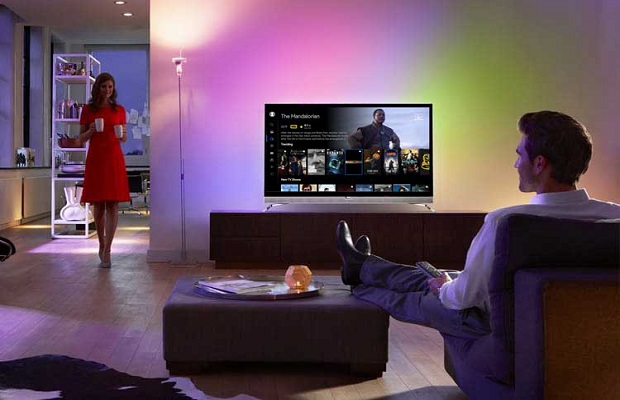In today's digital age, the way we consume media has radically transformed. Traditional cable and satellite TV services are gradually being replaced by more flexible and user-friendly options like Internet Protocol Television (IPTV) and streaming services.
But what exactly are these technologies, and is IPTV the same as a streaming service? This blog post will dive into the answers to those questions.
Understanding IPTV
Internet Protocol Television, or IPTV, is a system where digital television programming is delivered over the internet rather than through traditional terrestrial, satellite, or cable formats. In contrast to downloaded media, IPTV provides the capability to stream source media continuously.
The 'IP' in IPTV is the same as in your IP address, which means Internet Protocol. It refers to the technology transporting data from the provider to the viewer. IPTV's capability to interact with other IP-based services like high-speed internet or VoIP sets it apart.
IPTV comes with several advantages. It offers a wide range of channels, high-definition content, and the ability to choose the program you want to watch whenever you want. However, it requires a strong and stable internet connection, and in some cases, it might be more expensive than traditional TV services.
Understanding Streaming Services
On the other hand, streaming services deliver video content over the internet in real-time. They allow users to access a vast library of movies, series, documentaries, and more without needing a physical disc or a scheduled broadcast time.
Unlike IPTV, most streaming services operate on an Over-The-Top (OTT) model. This means they bypass traditional media distribution channels and deliver content directly to consumers online. Some popular examples include services that offer on-demand content and live TV channels.
Streaming services have reshaped the entertainment industry, providing unprecedented accessibility, variety, and convenience. However, like IPTV, they also require a robust internet connection and can lead to additional costs if you subscribe to multiple platforms.
IPTV vs Streaming Services
At first glance, IPTV and streaming services might seem similar, delivering content over the internet. However, the underlying technology and delivery methods distinguish them.
IPTV typically uses a private network provided by your internet service provider (ISP). It relies on an Internet Group Management Protocol (IGMP) protocol to manage live TV broadcasts and real-time interactive information. In contrast, streaming services use public internet connections and transport streamed data using protocols like HTTP Live Streaming (HLS).
The role of IP in both platforms is crucial. IPTV uses IP to deliver video traditionally delivered over terrestrial, satellite, or cable formats. Meanwhile, streaming services use IP to bypass these traditional formats and deliver content directly to consumers.
The Intersection of IPTV and Streaming Services
While there are distinct differences between IPTV and streaming services, there's also a significant overlap. Some IPTV services incorporate streaming platform features, offering on-demand content alongside scheduled broadcasts. Conversely, some streaming services provide live TV channels, blurring the lines with IPTV.
The combination of IPTV and streaming technologies has created a new hybrid model for delivering digital media. This has opened up a world of possibilities for content consumption, allowing viewers to access a diverse range of content on their terms.
Frequently Asked Questions
Here are some commonly asked questions about IPTV and streaming services.
What is IPTV?
Internet Protocol Television (IPTV) is a system where digital television programming is delivered over the internet rather than through traditional terrestrial, satellite, or cable formats. It offers the ability to stream source media continuously.
What are Streaming Services?
Streaming services deliver video content over the internet in real-time. They allow users to access a vast library of movies, series, documentaries, and more without needing a physical disc or a scheduled broadcast time.
How does IPTV work?
IPTV uses a private network provided by your internet service provider (ISP). It relies on an Internet Group Management Protocol (IGMP) protocol to manage live TV broadcasts and real-time interactive information.
How do Streaming Services work?
Streaming services operate on an Over-The-Top (OTT) model, bypassing traditional media distribution channels and delivering content directly to consumers online. They transport streamed data using protocols like HTTP Live Streaming (HLS).
Are IPTV and Streaming Services the same?
No, IPTV and streaming services are not the same. While they deliver content over the internet, their technologies, delivery methods, and functionalities differ. However, there's a significant overlap as some IPTV services incorporate streaming platform features and vice versa.
Embracing the Future of Digital Media Consumption
To answer the initial question, IPTV is not the same as a streaming service. While they deliver content over the internet, their technologies, delivery methods, and functionalities differ. However, the lines between them are increasingly blurred, with both borrowing elements from each other to enhance the viewer's experience.
IPTV represents a significant shift in how we consume television, providing a more personalized and interactive viewing experience. Meanwhile, streaming services continue to revolutionize the entertainment industry, offering a wealth of content at our fingertips.
Regardless of their differences, one thing is clear: both IPTV and streaming services represent the future of media consumption, providing audiences with more choice, flexibility, and control than ever before.

No comments:
Post a Comment